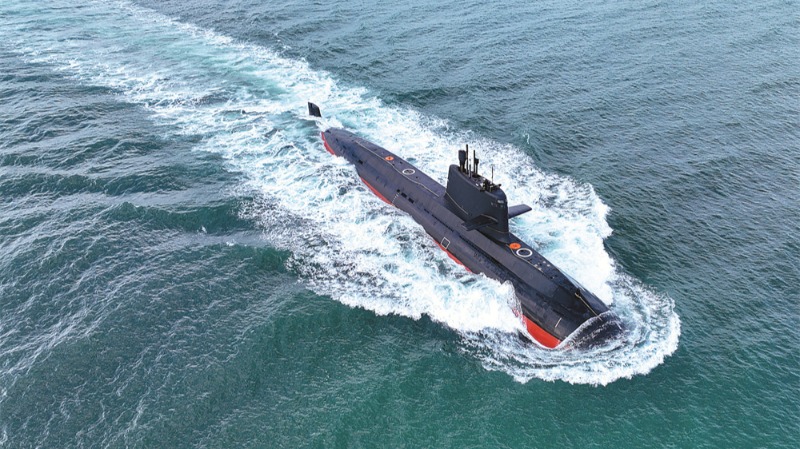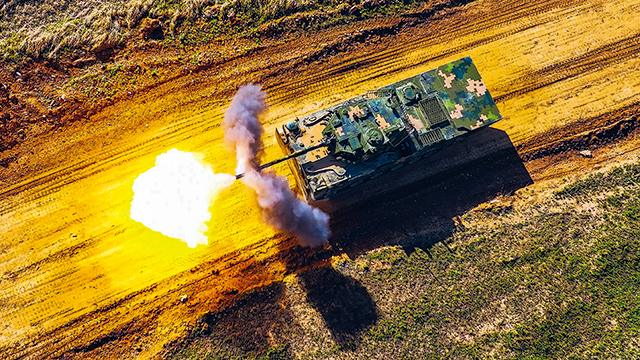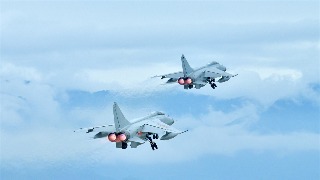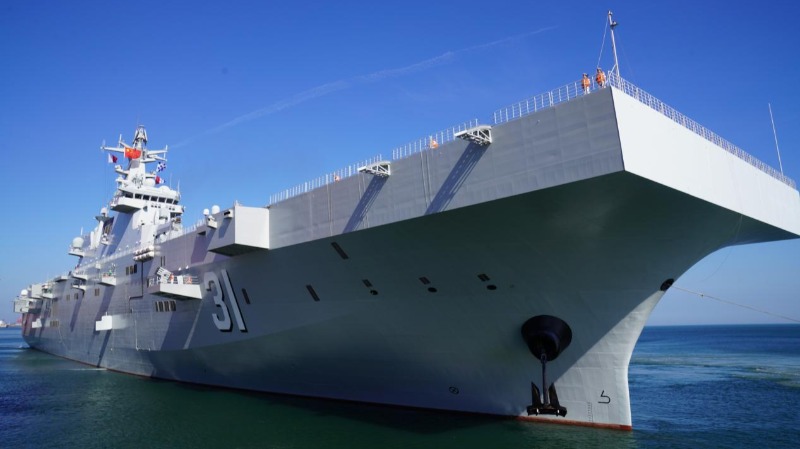By Li Ruoyu
Recently, Japanese media disclosed that the Kishida government has reached a basic consensus within its internal ranks regarding the 2024 annual defense budget, which could amount to a record high of 7.7 trillion yen. This unprecedented defense budget awaits approval by the cabinet later this week. The Kishida government is not exempt from pressure when it comes to passing such a substantial defense budget. Kishida's declining popularity, now falling below the critical threshold of 20%, is closely linked to his intent to raise taxes to fund the defense budget.
Why is the Kishida government so fixated on its defense budget?
The primary reason comes from the US. Increasing the defense budget to 2% of GDP is a clear requirement from the US to its allies. In the context of rapid evolution over the past century, the US, with relatively less influence, can transfer military pressure to Japan on one hand, while a significant portion of Japan's increased defense expenditure will flow to the US military-industrial complex through the purchase of weapons and equipment on the other hand. It is difficult for Japan, when it can't get rid of its subordinate status in the US-Japan military alliance, to say no to the US.
Secondly, expanding the defense budget aligns with the conservative forces in Japan's political circles pursuing rearmament, aiming to free Japan from the constraints of the international order after World War II. Therefore, even if the US' demand for a "2% of GDP" exceeds Japan's economic capacity, a significant portion of Japanese politicians are willing to accommodate it at any cost.
More importantly, "the total defense budget for the next five years is projected to reach 43 trillion yen", which has been included in Japan's new version of the Mid-Term Defense Program and reaffirmed in this year's defense white paper. The amount of "43 trillion yen in five years" translates to an average annual defense budget of 8.6 trillion yen. Currently, the record-high 7.7 trillion yen has not yet reached this level, and Japan's defense budget is expected to continue growing significantly in the upcoming years.
With pressure from the US on the one hand, and what is clearly written into the government's plans on the other, a change in the established course would undoubtedly require a strong public opinion base, which is precisely what the Kishida administration, whose support rating is at a record low, does not have. As the government continues to push for tax increases to secure funding for the high defense budget, approval ratings will decline even further, trapping the Kishida government in a vicious cycle.
Japan's escalating defense budget is a matter of widespread concern for the international community. Article 9 of Japan's Constitution stipulates that "land, sea, and air forces, as well as other war potential, will never be maintained" . This means that if Japan strictly adheres to the provisions of its constitution, it cannot stay armed. For this reason, when Japan established the Self-Defense Force in 1954, it emphasized the aspect of "self-defense", and Japan's military-related budget was therefore called the "defense budget".
However, Japan's behavior of expanding its defense budget continuously goes beyond the meaning of "self-defense" and displays a serious "over-defense". In 2014, the concept of "capability to attack enemy bases" was derived from the so-called "right of collective self-defense" proposed by the Abe administration. However, the word "attack" clearly contradicts Japan's pacifist Constitution and the Kishida government revised it to "counterattack capability against enemy bases". Both "attack" and "counterattack" heavily rely on the Tomahawk cruise missiles from the US, which constitute a major portion of the defense budget, with a significant 7.7 trillion yen spent on upgrading military equipment.
It is worth noting that Japan also has a pathway for the reuse of retired military equipment. Following the implementation of the Three Principles on Transfer of Defense Equipment led by the Abe government, Japan's foreign military exports have significantly relaxed. In recent years, Japan has repeatedly proposed to ASEAN countries to strengthen cooperation in maritime and other security areas. During the recently concluded Japan-ASEAN Commemorative Summit, Japan once again highlighted an exaggerated depiction of "crisis and challenge", which had long been perceived as indirectly referring to China. Simultaneously, Japan has initiated the transfer of its decommissioned ships to countries such as the Philippines through donations. Consequently, Japan's increasing military budget is subtly associated with its policy of containing China.
The recent funding scandal of the Liberal Democratic Party has cast a shadow over the political future of Kishida's government. Regardless of whether Prime Minister Kishida dissolves the House of Representatives early or not, this term will end in 2024. The year 2024 is destined to be Japan's election year. By then, Kishida's government will face public scrutiny in Japan for implementing tax increases to meet military budget needs and sacrificing China-Japan economic and trade cooperation for the purpose of aligning with the US' policy of containing China.
(The author is a special researcher at the Institute of Japanese and Korean Studies, Sichuan Normal University, National and Regional Research Filing Center, Ministry of Education.)
Editor's note: Originally published on china.com.cn, this article is translated from Chinese into English and edited by the China Military Online. The information and opinions in this article do not necessarily reflect the views of eng.chinamil.com.cn.




















